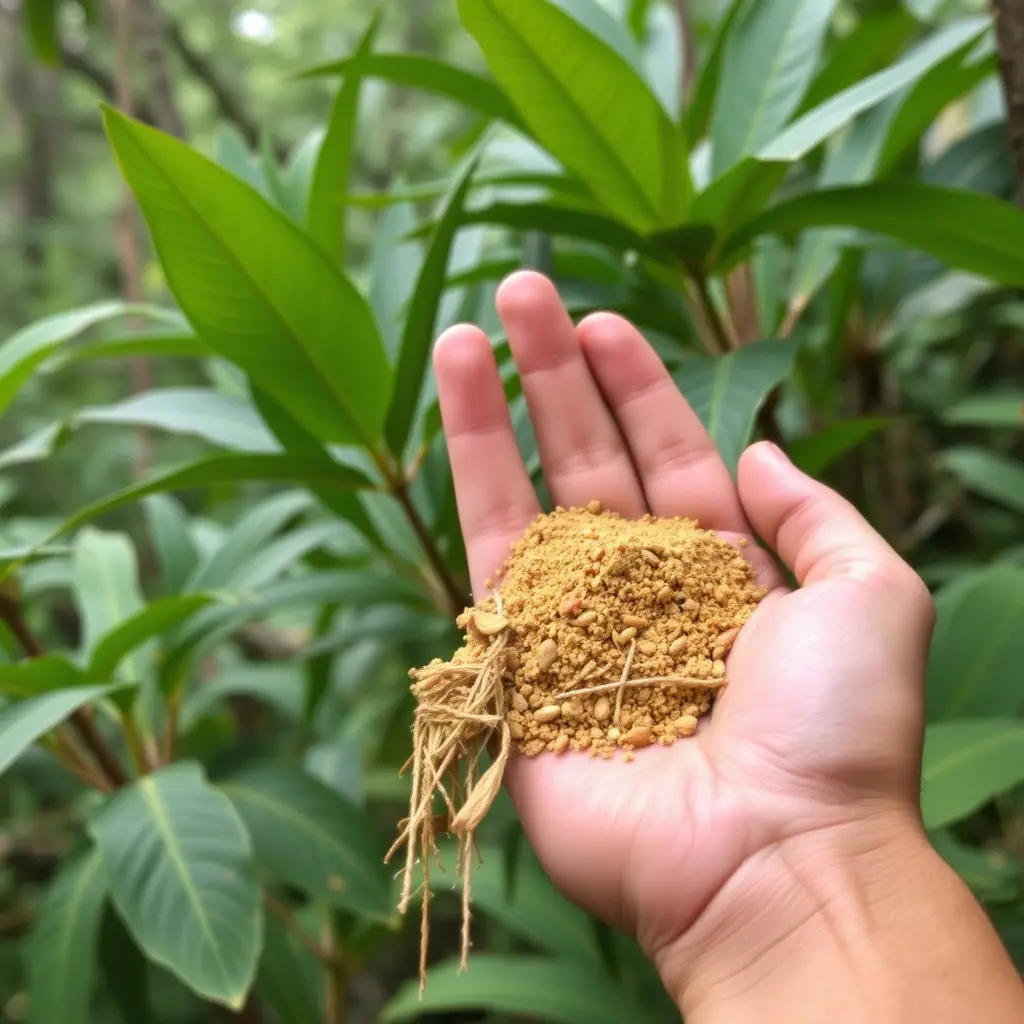Kratom, a plant from Southeast Asia, has shown potential as a natural modulator of the immune system, offering support for individuals with fibromyalgia. The alkaloids mitragynine and 7-hydroxymitragynine have been studied for their ability to interact with the immune system, potentially aiding in the management of fibromyalgia's chronic pain, fatigue, and inflammation. These compounds may regulate cytokine production and T-cell activity, contributing to a more balanced immune response. Early research suggests that kratom could improve quality of life for fibromyalgia patients by alleviating symptoms with fewer side effects compared to traditional medications. However, due to the complexity of fibromyalgia and individual differences in response, further clinical studies are necessary to establish its safety, efficacy, and mechanisms as a treatment option. The ongoing research into kratom for fibromyalgia support aims to clarify its role and therapeutic benefits, with the potential to provide a viable alternative for managing this condition.
Exploring the complex interplay between natural substances and the immune system, this article delves into the potential of kratom in supporting those with fibromyalgia. Unveiling its immunomodulatory properties, we examine how active alkaloids within kratom, namely mitragynine and 7-hydroxymitragynine, may offer relief from fibromyalgia symptoms. Through a scientific lens, we explore the nuanced interactions between kratom and the immune system, providing insights into its therapeutic potential for individuals grappling with this condition. Join us as we shed light on kratom’s role in immune system function and regulation for better health outcomes.
- Unraveling the Role of Kratom in Modulating the Immune System for Fibromyalgia Sufferers
- Kratom's Active Alkaloids: Mitragynine and 7-Hydroxymitragynine: A Closer Look at Their Immunomodulatory Effects
- Navigating the Science: How Kratom Interacts with the Immune System to Provide Relief for Fibromyalgia Symptoms
Unraveling the Role of Kratom in Modulating the Immune System for Fibromyalgia Sufferers

Kratom, a plant originating from Southeast Asia, has garnered attention for its potential therapeutic effects on various health conditions, including fibromyalgia. Research indicates that kratom contains alkaloids, such as mitragynine and 7-hydroxymitragynine, which may offer support to the immune system. For individuals suffering from fibromyalgia, a condition characterized by widespread pain, fatigue, and a myriad of other symptoms, the immune system often plays an atypical role. Kratom for fibromyalgia support could be multifaceted; its interaction with immune cells suggests it might modulate inflammatory responses that contribute to the chronic pain experienced by patients. By potentially regulating cytokine production, a group of signaling molecules crucial to immune function, kratom may help alleviate some of the symptoms associated with fibromyalgia. This could provide a much-needed reprieve for sufferers whose quality of life is often compromised by their condition. Clinical studies are necessary to further elucidate the mechanisms by which kratom interacts with the immune system in fibromyalgia, and to assess its safety and efficacy as a therapeutic option.
Kratom's Active Alkaloids: Mitragynine and 7-Hydroxymitragynine: A Closer Look at Their Immunomodulatory Effects

Kratom, a tropical evergreen tree native to Southeast Asia, has garnered attention for its potential therapeutic properties, particularly in supporting immune system function and regulation. The plant’s active alkaloids, mitragynine and 7-hydroxymitragynine, are at the forefront of research due to their immunomodulatory effects. Mitragynine, the most abundant alkaloid in Kratom, has been studied for its impact on the immune system, suggesting it may help modulate immune responses, potentially aiding in conditions like fibromyalgia where immune dysregulation is implicated. 7-Hydroxymitragynine, a related alkaloid with a more potent analgesic profile, also shows promise in immunomodulation, which could be beneficial for individuals experiencing chronic pain associated with fibromyalgia and other conditions.
Research indicates that these alkaloids may influence various components of the immune system. For instance, they have been observed to affect cytokine production—a key element in immune signaling—which could lead to a more balanced immune response. This balanced effect is particularly intriguing for those seeking natural alternatives to manage conditions like fibromyalgia, where traditional treatments may fall short or carry significant side effects. The potential of kratom’s alkaloids to support the immune system warrants further investigation, as understanding their mechanisms fully could pave the way for novel therapeutic approaches in managing a variety of health issues.
Navigating the Science: How Kratom Interacts with the Immune System to Provide Relief for Fibromyalgia Symptoms

Kratom, a plant originating from Southeast Asia, has garnered attention for its potential role in modulating the immune system and offering relief for individuals suffering from fibromyalgia. Scientific investigations into kratom’s pharmacological properties have revealed that its primary alkaloids, mitragynine and 7-hydroxymitragynine, may interact with various immune system components. These interactions can lead to both immunomodulatory and anti-inflammatory effects, which are particularly beneficial for fibromyalgia patients who often experience heightened inflammation and compromised immune function due to their condition. The mechanisms by which kratom exerts its effects are complex and multifaceted; it appears to influence cytokine production and T-cell activity, potentially leading to a more balanced immune response. This modulation can help alleviate the widespread pain, fatigue, and other debilitating symptoms characteristic of fibromyalgia, allowing patients to experience a better quality of life.
Furthermore, anecdotal evidence and emerging clinical studies suggest that kratom for fibromyalgia support is a promising area of research. Users report that kratom helps manage their symptoms, with its analgesic properties offering significant pain relief without the side effects often associated with conventional medications. The plant’s ability to regulate the body’s stress response, as indicated by its action on the hypothalamic-pituitary-adrenal (HPA) axis, also contributes to the overall immune system support it provides. This comprehensive effect on both the immune and nervous systems makes kratom a compelling subject of study for those seeking natural approaches to fibromyalgia management. As research continues to evolve, the role of kratom in supporting the immune system and offering relief from fibromyalgia symptoms may become clearer, potentially leading to new therapeutic avenues for patients.
In conclusion, the evidence suggests that kratom may offer promising support for individuals with fibromyalgia by modulating immune system function and regulation. The alkaloids mitragynine and 7-hydroxymitragynine found within kratom have been observed to exert immunomodulatory effects, potentially providing relief from symptoms associated with the condition. While further research is warranted to fully understand the mechanisms at play and the long-term implications of such use, the current findings present kratom as a compelling option for fibromyalgia support. It is essential for individuals considering kratom as part of their treatment plan to consult healthcare professionals to ensure safe and effective usage. The potential of kratom for fibromyalgia support underscores the importance of ongoing scientific investigation into its benefits and risks.






